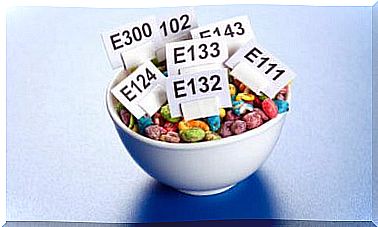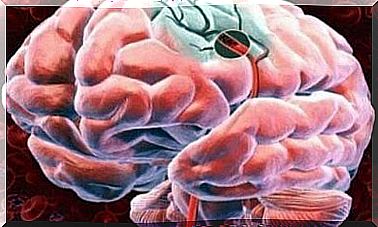7 Myths About Healthy Eating That Dieters Hate

There is a lot of confusion about nutrition. Every day we receive contradictory news about foods and are often unable to distinguish what is true from completely false information. In some cases, we even talk about myths about healthy eating that, in this article, we will try to dispel.
A healthy diet must be varied and balanced. Furthermore, there are no miracle foods nor, on the contrary, foods that are harmful regardless.
If anything, in order to eat healthy, it is essential to always seek the right balance between the different nutritional elements, avoiding excesses.
7 myths about healthy eating
1. Eggs contain a lot of cholesterol
As you surely know, eggs are a source of cholesterol. One of the myths about healthy eating relates to their consumption which should be avoided to reduce the risk of heart disease, according to some.
However, the impressive list of vitamins and minerals found in eggs has been linked to oodles of health benefits.
In addition to promoting weight loss, consuming eggs is good for the eyes and promotes the development of strong muscles.
Advice
- Eggs can be included as part of a balanced diet. The key is always moderation. Most healthy people can eat one egg a day without any problems.
2. Avoid gluten for healthy eating
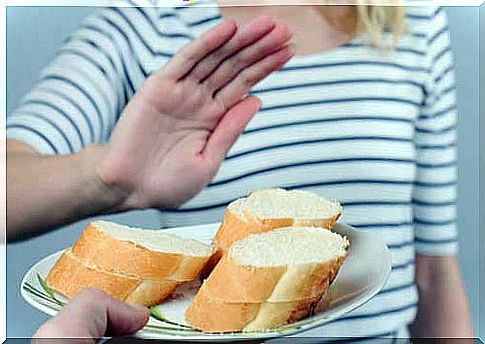
Gluten is a protein found in wheat, barley and rye grains. Diets that are processed gluten-free are generally meant for those people who suffer from celiac disease or who are sensitive to this important protein complex.
If you do not have these health problems and avoid eating gluten for a personal choice, it is possible that, in the long run, you may suffer from a lack of vitamins, fibers and minerals necessary for the normal well-being of the body.
One of the myths about healthy eating, which must be debunked, is that a gluten-free diet is used to lose weight.
Advice
- If you don’t have celiac disease, a balanced diet should contain gluten-containing foods made with whole grains.
- What you should avoid are industrial flours and breads, which are processed using absolutely exaggerated sugar levels.
3. Diet foods are for weight loss
Foods labeled “diet” often have low fat, low carbohydrate content and are artificially processed to promote weight loss.
However, they may not necessarily contain a small number of calories . Therefore, if you are looking for a way to lose weight, eating these types of products could be counterproductive.
Advice
- Always check the labels of “diet” or “light” products. Pay particular attention to how many calories are contained in each serving and compare this value with the same product in its “normal” version.
4. To eat healthy, red meat must be eliminated
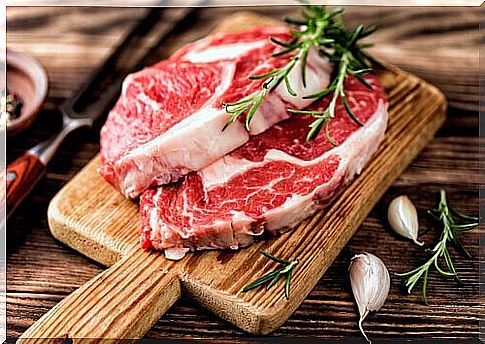
Red meat is often linked to an increased risk of suffering from heart disease. However, it is one of the myths about healthy eating that needs to be debunked. In fact, all meats cause this problem.
- It is advisable to avoid overly elaborate and particularly fatty meats.
- Remember that red meats are an excellent source of protein, vitamin B12, collagen, iron and zinc.
Advice
- Instead of completely excluding red meat, always choose the leanest cuts with the least amount of fat.
- Accompany the consumption of meat with other varieties of protein sources, such as poultry, eggs, legumes, fish and seafood.
5. Granola should be eaten for breakfast
While everyone thinks it’s the perfect breakfast dish, granola should be considered a dessert dessert. Although it contains a blend of whole grains, it usually also includes honey and fruit.
A high-sugar diet is linked to an increased risk of suffering from serious illnesses, from diabetes and heart disease to cancer.
Advice
- You can replace granola with cooked oatmeal flakes. We recommend adding nuts and other dried fruits to get a more crunchy texture.
- You can make granola using less sugar and adding fruit to limit calorie intake.
6. To lose weight, just decrease the portions
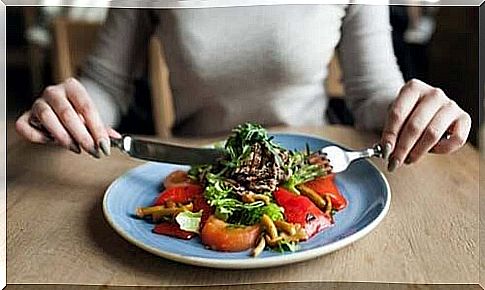
Eating healthy and losing weight does not mean giving up a healthy and tasty diet. Another myth that needs to be debunked is that portions are the only thing that needs to be taken into account when you want to lose weight.
Instead of focusing on portions and calories, you should carefully choose your food based on different nutritional values.
Try to eat a diet that doesn’t cause hunger, guilt, or frustration. This will allow you to maintain this targeted diet for longer, achieving significant long-term results. Seeking the help and support of a dietician, dietician or nutritionist can definitely be a good idea.
Advice
- Following a diet does not mean that you are constantly hungry. If you want to lose weight, limit your consumption of sugars and fats.
7. Foods high in fat make you fat
It’s true: foods high in healthy fats have more calories. But even these are essential to satiate the stomach and control junk food addiction.
Fat contains more calories per gram than carbohydrates and proteins. But there are fats, called essential, that cannot be excluded from the diet.
The so-called “healthy fats” will help you eat less and reduce cravings by improving your metabolism.
Advice
- Opt for good quality vegetable, seed and nut oils.
- Avoid fried or trans-fat foods.
Forget the myths about healthy eating
As you have seen, there are many myths about healthy eating that are worth debunking. Follow a varied and balanced diet, without excesses and always choosing fresh, unprocessed foods cooked in the most natural and simple way possible.
Carbohydrates, proteins and fats are equally important and your body cannot ignore them. You just need to combine them appropriately, always checking the vitamin and energy intake.
A visit to the dietician will surely help you dispel any doubts.




